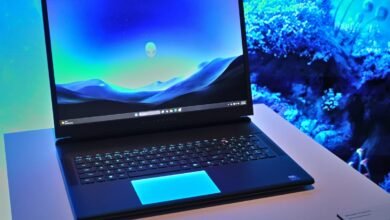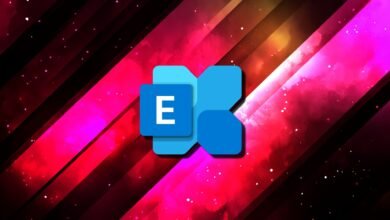I Tested Copilot on My Microsoft and Google Accounts – Here’s What Happened

▼ Summary
– Microsoft Copilot can now connect to personal Microsoft and Google accounts, including OneDrive, Outlook, Gmail, and Google Calendar, for Windows 11 Insiders.
– Users can ask Copilot to find and access specific emails, files, or calendar appointments across these connected services.
– Setting up the connection requires enabling connectors in Copilot’s settings, with Google services requiring additional permission steps.
– Copilot can export conversations into editable Microsoft Office files like Word, Excel, or PowerPoint for further use.
– These features are currently available only to Windows 11 Insiders and may take months to reach all Windows 11 users.
Microsoft is expanding the capabilities of its Copilot AI assistant by enabling it to connect directly with your personal Microsoft and Google accounts. This integration, currently available to Windows 11 Insiders, allows the AI to search through and retrieve information from services like OneDrive, Outlook, Google Drive, Gmail, and Google Calendar. You can now ask Copilot to perform tasks such as finding a specific email, locating a document, or checking your next calendar appointment, all through a simple conversational prompt.
Setting up the connection is straightforward for those on the latest Windows 11 Insider build. You open the Copilot app from the taskbar, navigate to Settings, and then visit the Connectors section. There, you can toggle on the services you wish to link. Connecting your Microsoft accounts is a seamless process, while linking Google services involves a few more steps, requiring you to grant specific permissions for the AI to view your emails, manage drafts, see your calendar, or access files in your Drive.
In practical tests, the feature performed reliably. Asking Copilot to find a file named “Business Invoices” in OneDrive yielded several results, with the correct file appearing at the top of the list for easy opening. A query for a specific Bloomberg subscription email in Outlook successfully pinpointed the desired message among a few results. The assistant also efficiently located a document about Excel tips stored in Google Drive, presenting a link that opened directly in Google Docs.
The integration extends to Gmail and Google Calendar as well. A request to find an email from Covent Garden brought up the original message and a forwarded copy, with links to view them in Gmail. Asking for your next dentist appointment prompted Copilot to find the date and time from Google Calendar and provide a direct link to the event. A particularly useful feature is that you don’t need to specify which service to search. A general query for emails about “Google Voice” returned relevant results from both Outlook and Gmail, demonstrating the AI’s ability to search across connected accounts simultaneously.
This functionality to link external services is not entirely new, as it has been available on the Copilot website and in its mobile apps for iOS and Android. The Windows 11 Insider update simply brings this level of integration to the desktop app, creating a unified experience. It’s worth noting that other AI assistants offer similar integrations; ChatGPT and Google Gemini can also connect to Outlook and Gmail, with ChatGPT supporting an even wider array of third-party apps like Dropbox, Slack, and Spotify.
As part of this update, Microsoft has added another convenient perk. The Copilot Windows app can now export your entire conversations into editable Microsoft Office files. You can instruct the AI to turn the chat text into a Word document or transform a discussed data table into an Excel spreadsheet. For longer responses exceeding 600 characters, an export button appears, allowing you to send the content directly to Word, PowerPoint, Excel, or even save it as a PDF.
Since these new features are currently in the testing phase with Windows 11 Insiders, it may be several months before they become available to all Windows 11 users. This rollout represents a significant step in making AI a more integrated and practical tool for managing daily digital tasks across multiple platforms.
(Source: ZDNET)





